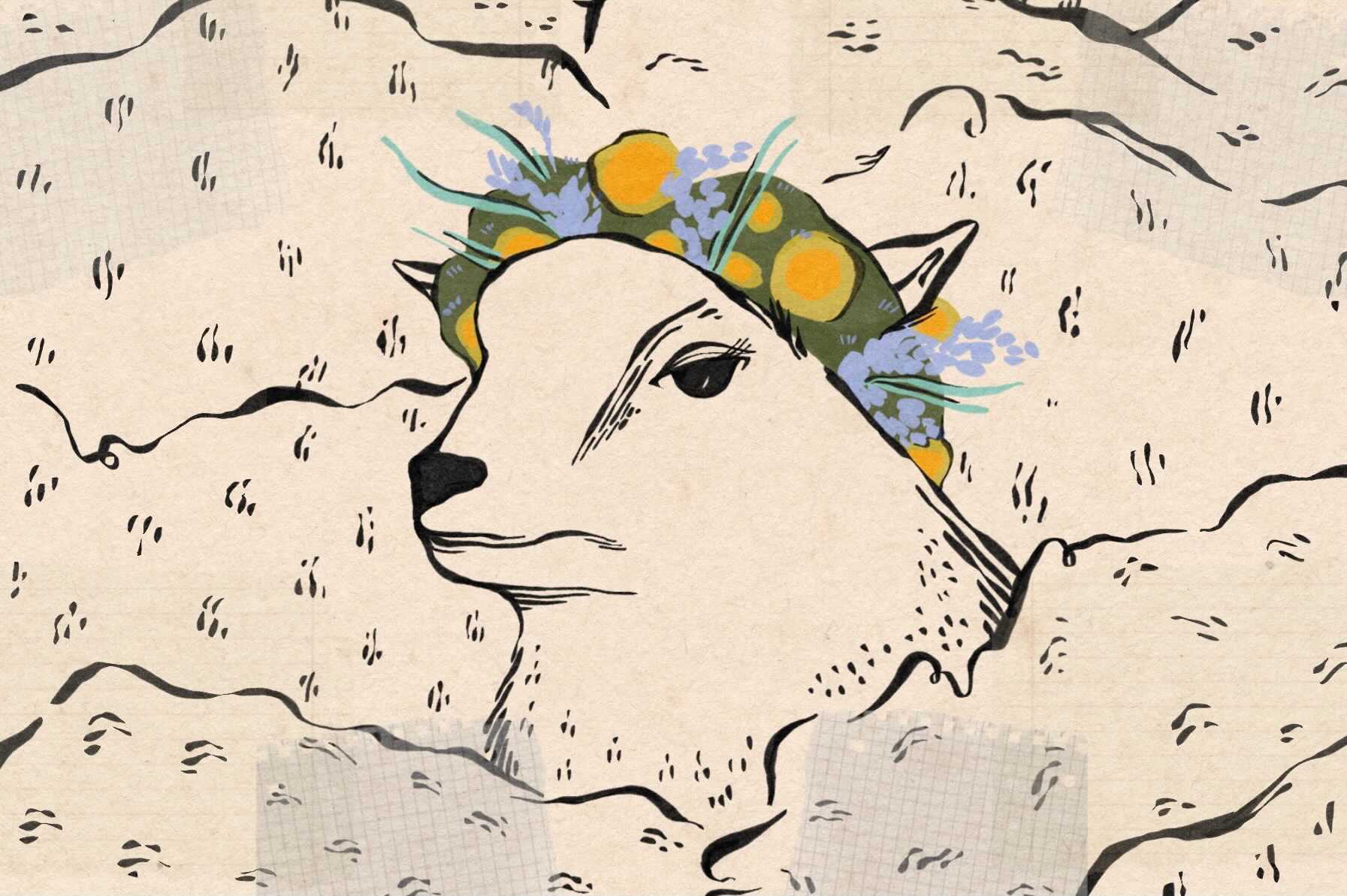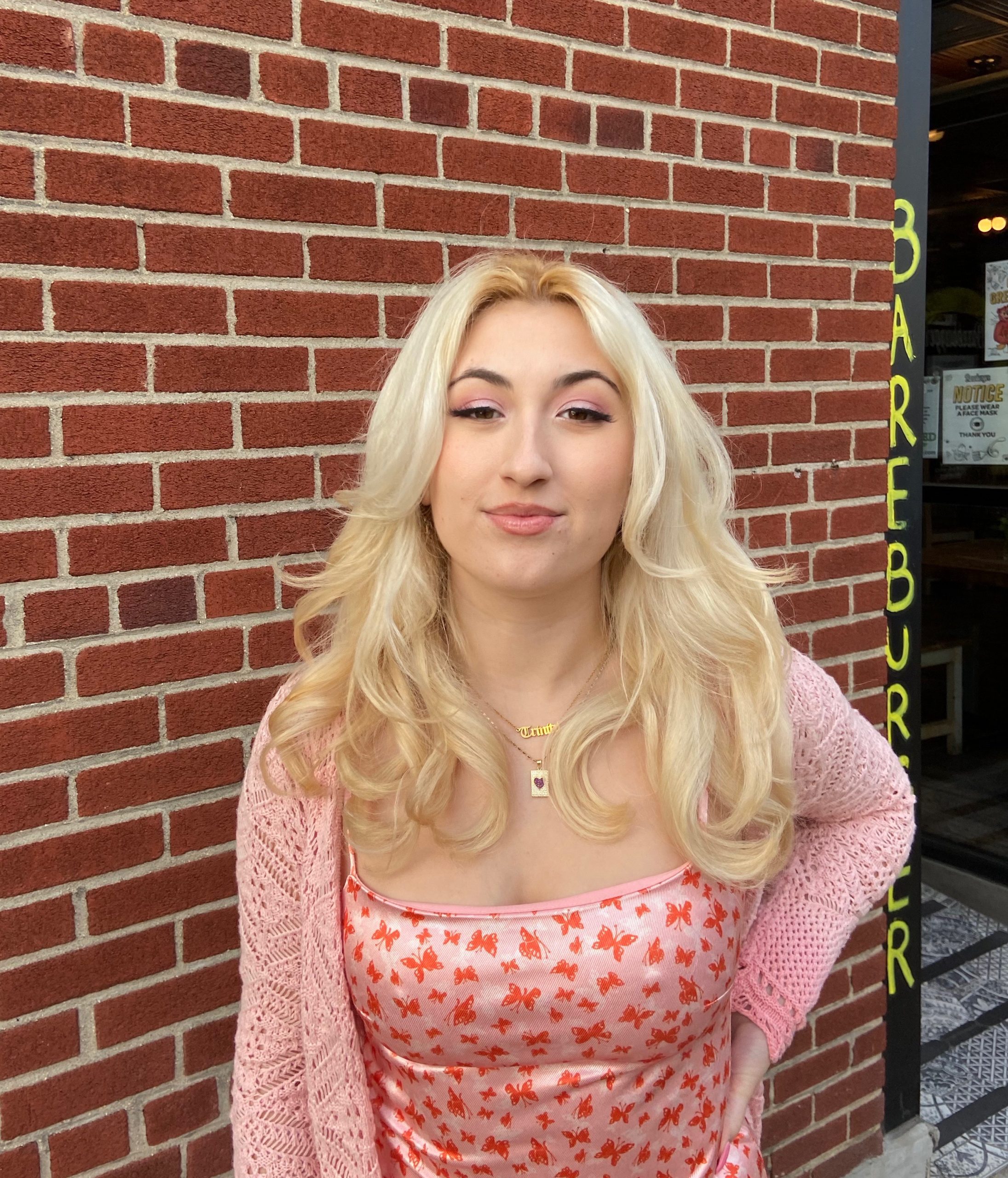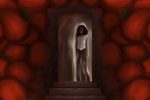A24’s latest film, “Lamb,” hits every one of the studio’s classic marks. A24 is an entertainment company known for creating “Eighth Grade,” “Lady Bird,” “Uncut Gems” and many other successful films. These movies quickly gained popularity based on the studio’s brand name alone. Thanks to A24’s production of fantastic film after fantastic film, its reputation has been well-earned. Fans know that they can expect a high-quality movie when they step into theaters for an A24 production. Whether the objective of the film is to instill joy or fear, viewers can be sure that they’ll get the most out of their movie ticket. A classic A24 movie is characterized by an appealing aesthetic, uncommon subject matter and, unfortunately — an unsatisfying ending.
“Lamb” fits A24’s incredibly high standards, but the concept of the film is bizarre. Maria and Ingvar, an Icelandic couple played by Noomi Rapace and Hilmir Snær Guðnason, live completely alone on their farm. Without it being directly stated, it seems that there is a sadness to this couple that insinuates that they are grieving, and their childlessness appears to be the most likely source. Early in the film, Maria and Ingvar begin to raise a baby lamb as if it is their own child, naming her Ada. Extenuating circumstances justify their actions, but they are not revealed immediately. The nurturing of this creature is the focus of “Lamb.”
In line with the A24 criteria, the aesthetic of the film is beyond captivating. It takes place entirely on an isolated sheep farm in Iceland. The fields and mountains that surround the farm go on for miles, completely undisturbed. This emptiness is obviously eerie, but appealing nonetheless. A thick fog covers the land at all times, creating a sense of confusion and disorientation. The fear of the unknown is an ongoing theme in “Lamb,” as the lamb child has come from an unknown source.
A well-seasoned fan of the studio’s work will keep in mind A24’s refusal to relieve viewers with a satisfying conclusion. It is simply human nature to crave that conventionally happy ending. Time and time again, A24 proves to watchers that they will continue to withhold this comfort from the audience, and “Lamb” follows this pattern. A24 movies will often contain some appalling scene that uproots the entire movie and then end the film just moments after.
There is something incredibly interesting about sitting in this discomfort; it is a tactic that keeps viewers thinking about the film for days on end. When a movie allows the audience the comfort of knowing that the main characters went on to prosper, it is as if the story truly ends. Without this gratification, the audience is left thinking about what happened to these characters and where they may be now. The characters ceased to exist the moment the movie ended, but they live on in the minds of viewers that were unsatisfied with the way they saw these characters last.
Arguably, some of the greatest horror movies of this era have come from A24. For example, Ari Aster created “Hereditary” and “Midsommar” with this studio. Each of these movies offered a new perspective on horror; they both focused heavily on grief and the idea that evil events will take place regardless of human effort to avoid it. This concept is terrifying and leaves audiences with a lasting impact.
Grief is a theme in “Lamb” as well. Maria and Ingvar’s lack of children has obviously taken a toll on the couple, and it is possible that they lost a baby in the past. A24 captures these situations of suffering in such an interesting way. The actions of a person in mourning do not require justification. When Maria immediately takes on Ada as her own child, Ingvar does not stop her. Ingvar’s brother, Peter, played Björn Hlynur Haraldsso, even accepts Ada. In both “Hereditary” and “Midsommar,” the main characters also act in an irrational and erratic manner. They are both grieving the loss of family members, so the surrounding characters and the audience allow them to do as they please.
Another curious aspect of “Lamb” is that the entire film is in Icelandic. There is not much dialogue, so when the audience finally hears the characters speak, they are even more intrigued. Not understanding the language that the main characters are speaking in a horror movie makes it scarier. In “Midsommar,” there are some characters that speak entirely in Swedish; the characters that speak English feel anxious when they do not understand what is being said. English-speaking audiences can then relate to the English-speaking characters, as they, like anyone who has experienced language barriers, feel the same way. The language barrier creates distance, causing that fear of the unknown to come into play once again.
“Lamb” is extremely well-made. The cinematography and effects are undoubtedly excellent, the characters are strangely captivating and the subject matter definitely leaves fans with much to consider. Most movies from this studio pose some sort of question to the audience. Viewers may not notice, but they are making hard decisions while watching A24 movies. While viewing “Lamb,” the audience begins to consider this idea of finding a lamb human hybrid. One must ask themselves if they would feel the obligation to keep this creature alive. The film may sway viewers toward one opinion rather than another, but that idea of what is right and wrong remains in the hands of the audience long after the screen turns dark.
The line between human and animal is blurred in “Lamb.” This movie challenges the typical idea of parenthood. After all, a human raising a non-human creature as a baby would disturb plenty of people. “Lamb” urges viewers to consider what exactly differentiates a human from an animal. Ada is not entirely human and not entirely lamb. She wears human clothes and interacts with Maria and Ingvar in the same manner that any child would. The audience needs to decide if they can accept Ada as a creature worthy of this nurturing human love or not. Ultimately, “Lamb” is a journey to discover one’s own feelings on the subject.

















